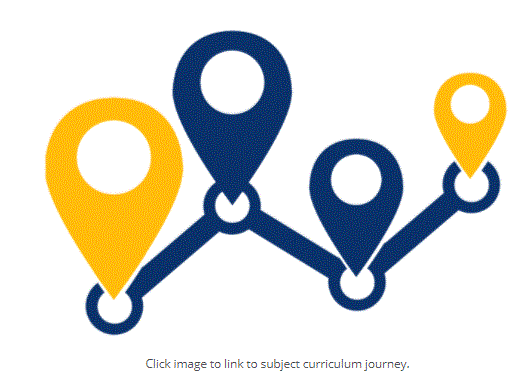| INTENT |
| Give students an opportunity to gain a coherent understanding of the world around them through the practical exploration of styles, conventions and study of practitioners. |
| Develop and refine confidence, creativity and cooperation skills in preparation for the world of work. |
| Explore the history of theatre and performance. |
| IMPLEMENTATION |
| The curriculum is designed in a manner that all lessons form the foundations for the next lesson, resulting in a cumulative skills base focused around conventions for communication. All lessons at KS3 are assessed with each student having a lesson of Drama a fortnight. Schemes of work are progressive, using conventions learned initially in Year 7 to explore the next units. The Y7 curriculum is designed in a manner that allows all of the foundations of storytelling, convention skills, structuring and devising to be learned in order for the next schemes of work to be taught. Throughout the whole of KS3 the focus of exploration is on the 3 main elements of Btec Performing Arts: Devising and Rehearsal, Evaluation and Application. STAR challenges will be used to extend the learning of students. Extra curricular opportunities in Drama such as Drama Club and whole school productions give students with an enthusiasm for the Drama and opportunity to refine their skills during extending learning. The KS4 curriculum delivers the Btec Tech Award of Performing Arts, the design and layout of the course allows students to resit the exam unit (Component 3) in order to ensure they gain the highest mark possible. |
| IMPACT |
| KS3 students will have explored and used all Drama conventions in order to gain a better understanding of the world in which they live, their communities, fellow humans and peers. They will understand the motivations and consequences of peoples’ actions and have empathy for a range of situations. They will be able to cooperate, logistically plan, compromise, discuss, design, devise, think creatively, structure, develop, evaluate, apply, analyse and present work with insight and confidence. |
| KS4 students will have developed an understanding of a range of different performance styles and practitioners, they will know how to apply their theories practically and be able to evaluate and analyse performance, highlighting the interrelationships between a range of roles. Students will be able to design, devise, perform and evaluate a performance of their own creation in line with a brief. Students will be able to apply practitioner techniques in preparation for a performance of repertoire. |
Curriculum Vision
Curriculum Journey
Options Information
|
Qualification Name |
BTEC Level 1/Level 2 Tech Award in Performing Arts (Acting) |
|
|
Exam Board |
Pearson Edexcel |
|
|
Type (e.g. GCSE/BTEC Certificate) |
BTEC Tech Award (GCSE level) |
|
|
Level (1,2 or both) |
1 and 2 |
|
|
GLH (Guided Learning Hours) |
120 |
|
|
Course Content Outline (What will I study?) |
This is a highly practical and theory based course, in which you provide evidence for your work in a variety of ways. Your evidence for all types of assessment might be a performance, a video diary, a logbook, a power point presentation, a lecture demo or any combination from this list. Component 1 – Exploring the Performing Arts Component 2 – Developing Skills and Techniques in the Performing Arts Component 3 – Performing to a Brief The BTEC Level 2 Tech Award has the exact same worth/points as a GCSE. The grading is Distinction*, Distinction, Merit, Pass. This is equivalent is GCSE grade 8/9 for Distinction*, GCSE grade 7 for Distinction, GCSE grade 5/6 for Merit, GCSE grade 4 for Pass. |
|
|
Typical Lesson/Homework Activities (How will I study?) |
Students learn through experience, seeing theatre and making theatre for themselves. Students are introduced to a wide range of theatrical styles and contexts as they explore plays practically and work on performances. Pupils will:
|
|
|
Success Criteria (How will I be assessed?) |
The course is made up of three components: two that are internally assessed and one that is externally assessed. The three-block structure, explore, develop and apply, has been developed to allow students to build on and embed their knowledge. This allows them to grow in confidence and then put into practice what they have learned. The assessment structure is also designed so that students can build on what they learn, and develop their skills, as they move through the course. The combination of internal and external assessment means students will develop the knowledge, understanding and skills they need and then have the opportunity to put this learning into practice through a real-life scenario.
|
|
Staff |
Mrs M Perrett, Head of Performing Arts Mrs C Croft, Second in Department |
|
Succession Paths Post-16 (What can I do with this qualification?) |
The Edexcel BTEC Level 2 Tech Award in Performing Arts provides a good foundation for learners in post-16 education. It provides a suitable foundation for further study in the performing arts. Successful learners at level 2 may also consider general qualifications at level 3, such as A levels in Drama and Theatre Studies. The qualification does reflect the needs of employers and further and higher education institutions. |


